 UptimeObserver
VS
UptimeObserver
VS
 Monibot
Monibot
UptimeObserver
UptimeObserver delivers robust online service monitoring, allowing users to proactively track website uptime, DNS changes, port availability, domain expiry, and SSL certificate status. Its all-in-one dashboard helps businesses and IT administrators detect issues instantly, with configurable notification intervals and responsive support.
Integrations with communication platforms like Slack, Telegram, Discord, and Pushover enable immediate alerts, ensuring teams are always informed and able to respond quickly. With a choice of flexible plans—including a free tier, fast monitoring intervals, and multiple status pages—UptimeObserver supports scalable solutions to safeguard your digital presence efficiently.
Monibot
Monibot is a comprehensive monitoring solution designed to keep websites, servers, and applications operating smoothly. Leveraging intelligent monitoring, it continuously checks the health and performance of digital assets, issuing real-time notifications if any issues are detected—such as downtime, server overload, or SSL certificate expiry. The tool collects critical metrics, stores historic performance data, and presents actionable insights through intuitive charts.
Monibot's flexible alerting system supports various channels, including email and push notifications, as well as webhooks for integration into existing infrastructure. The platform also offers a lightweight agent for server monitoring and provides seamless REST API integration for custom application metrics, allowing users to maintain full control and react swiftly to emerging problems before they impact operations.
Pricing
UptimeObserver Pricing
UptimeObserver offers Freemium pricing with plans starting from $6 per month .
Monibot Pricing
Monibot offers Freemium pricing with plans starting from $8 per month .
Features
UptimeObserver
- Website Monitoring: Proactive uptime checks at customizable intervals
- DNS Monitoring: Alerts for DNS record modifications
- Port Monitoring: Continuous monitoring of critical server ports
- SSL Certificate Monitoring: Advanced alerts before certificate expiry
- Domain Name Monitoring: Early reminders for impending domain expiration
- Multi-Platform Integrations: Real-time alerts via Slack, Telegram, Discord, Pushover, Webhooks, and Email
- Customizable Status Pages: Share incident and uptime statistics with stakeholders
- Multiple Monitoring Intervals: Granular settings from 30 seconds up to 5 minutes
- Free and Paid Plans: Flexible choices for different business needs
- Basic and Priority Support: Email and chat-based assistance
Monibot
- Website Monitoring: Regularly checks website uptime and response times, tracks SSL certificate validity, and notifies on downtime or SSL expiry.
- Heartbeat Monitoring: Monitors server and application heartbeats to promptly detect and alert on outages.
- Server Monitoring: Installs a lightweight agent to monitor server performance metrics including CPU, memory, disk, and network usage with real-time notifications.
- Application Monitoring: Provides REST API for custom application metric tracking, such as database performance and failed login attempts.
- Flexible Alerting: Sends notifications via email, push services, and webhooks for integration with third-party tools and infrastructure.
- Historical Data & Analytics: Stores and visualizes response times and performance metrics to identify trends over time.
- Easy Integration: Supports quick setup and seamless connection with existing systems using API or agents.
Use Cases
UptimeObserver Use Cases
- Ensuring e-commerce website uptime and customer trust
- Receiving instant alerts for server outages or SSL issues
- Managing IT infrastructure with proactive monitoring and advance notifications
- Monitoring DNS and domain record changes for security
- Maintaining compliance by avoiding SSL or domain expiries
- Providing transparency with status pages for clients and users
Monibot Use Cases
- Ensure website uptime and promptly detect outages.
- Monitor server health to prevent performance bottlenecks.
- Automate application metric tracking and receive instant alerts for anomalies.
- Track SSL certificate expiry to maintain web security.
- Integrate monitoring and alerting with internal business processes through webhooks.
- Analyze historical trends in response times and server metrics.
- Set up sophisticated multi-channel alerts for diverse incident scenarios.
FAQs
UptimeObserver FAQs
-
How often does UptimeObserver check my site?
Monitoring intervals can be customized from every 30 seconds to less frequent intervals, depending on the selected plan. -
What types of alerts does UptimeObserver provide?
Alerts can be sent via email, Telegram, Slack, Discord, Pushover, and other available integrations to ensure prompt notifications. -
What happens if my website goes down?
You receive an alert through your chosen communication method, including details about the downtime or issue detected. -
Does UptimeObserver check from multiple locations?
Multiple location monitoring is currently available to a limited group of customers, with plans to expand availability soon.
Monibot FAQs
-
What channels does Monibot use for alert notifications?
Monibot sends notifications via email, push services such as pushover.net and ntfy.sh, and supports webhooks for integration with third-party systems. -
Can Monibot monitor custom application metrics?
Yes, Monibot allows users to send custom application metrics via its REST API, enabling monitoring of diverse application-specific data points. -
Does Monibot monitor SSL certificate expiry?
Monibot tracks SSL certificate validity and notifies users in advance when certificates are about to expire. -
What types of metrics does the server monitoring agent provide?
Monibot's agent collects and reports metrics such as CPU usage, memory usage, disk utilization, and network activity. -
How frequently does Monibot check website status?
Monibot issues HTTP requests to monitored websites every five minutes to ensure continuous supervision.
Uptime Monitor
Uptime Monitor
Average Uptime
100%
Average Response Time
823.75 ms
Last 30 Days
Uptime Monitor
Average Uptime
100%
Average Response Time
463.25 ms
Last 30 Days
UptimeObserver
Monibot
More Comparisons:
-
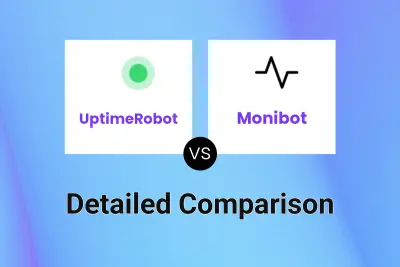
UptimeRobot vs Monibot Detailed comparison features, price
ComparisonView details → -

UptimeObserver vs Statustes Detailed comparison features, price
ComparisonView details → -
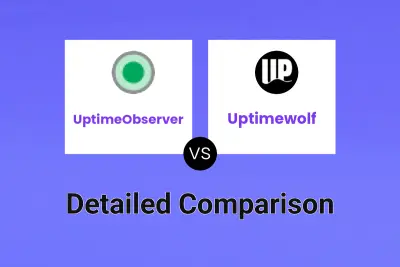
UptimeObserver vs Uptimewolf Detailed comparison features, price
ComparisonView details → -
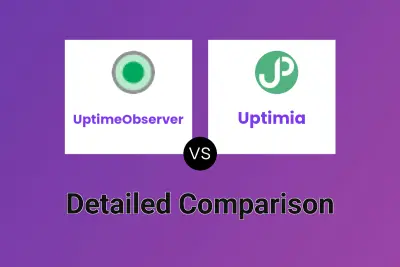
UptimeObserver vs Uptimia Detailed comparison features, price
ComparisonView details → -
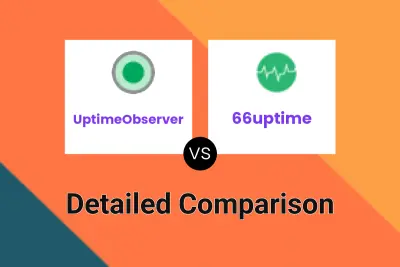
UptimeObserver vs 66uptime Detailed comparison features, price
ComparisonView details → -
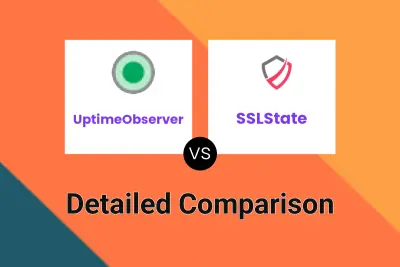
UptimeObserver vs SSLState Detailed comparison features, price
ComparisonView details → -
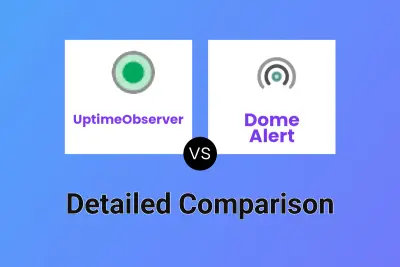
UptimeObserver vs Dome Alert Detailed comparison features, price
ComparisonView details → -
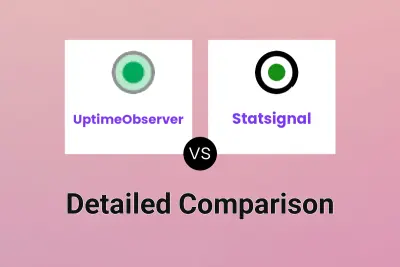
UptimeObserver vs Statsignal Detailed comparison features, price
ComparisonView details →
Didn't find tool you were looking for?